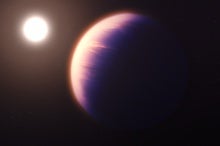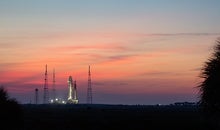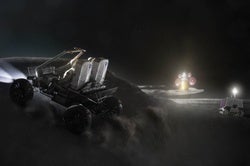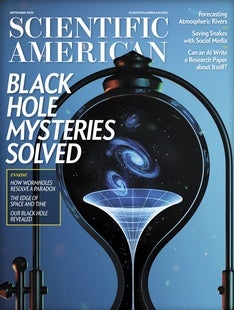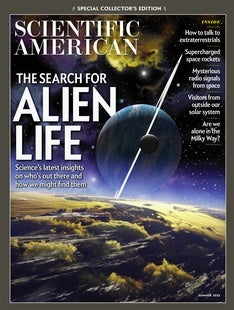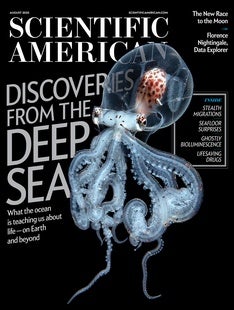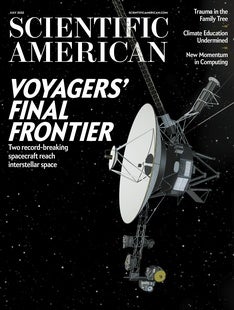 |
| September 01, 2022 |
Dear Reader,
This week, we're awaiting an appointment with destiny. After a scrubbed launch attempt on Monday, August 29, the first-ever flight of NASA's Space Launch System rocket and Orion spacecraft is now slated for the afternoon of Saturday, September 3. Although uncrewed, the flight will be a crucial test for the hardware meant to take astronauts back to the moon later this decade. The stakes are high for this event, the first mission of NASA's Artemis program, with a success or a failure each having profound—and profoundly different—implications for the future of U.S. human spaceflight. We'll be watching with bated breath this Saturday when the launch window opens at 2:17 p.m. Eastern time, and hope you will be, too. Elsewhere this week, we have stories on the secrets of black holes, quantum tunneling and DNA, a new exoplanet discovery from the James Webb Space Telescope, and more. Enjoy! |
| |
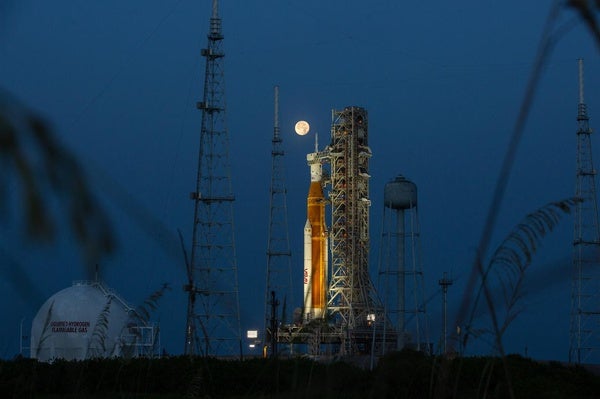 |
| |
| |
| |
| |
| |
| |
| |
| Black Holes What Is the Black Hole Information Paradox? A Primer Black holes, wormholes, entanglement, Einstein, mysterious islands and new science that sees how the inside of a black hole is secretly on the outside. |  | By Jason Drakeford,Clara Moskowitz,Jeffery DelViscio,Sunya Bhutta | | | |
FROM THE STORE
 | | Extraterrestrials and the Search for Life Do aliens exist? The enduring mystery of whether we're alone in the universe is a question that continues to drive scientific study into groundbreaking directions. This collection examines the latest thinking in the search for life, from discussing why we haven't found evidence of aliens so far to determining where and how to conduct the search to opening up the possibilities for what otherworldly life could truly look like. |  | | |
| |
FROM THE ARCHIVE
 | | | |
LATEST ISSUES
 |
| |
| Questions? Comments?  | |
| Download the Scientific American App |
| |
| |



